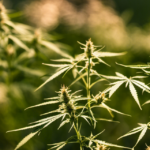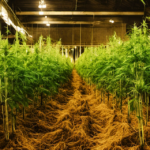In a recent letter, the Drug Enforcement Administration (DEA) clarified its stance on tetrahydrocannabinolic acid (THCA), a non-psychoactive cannabinoid found in cannabis. According to the letter, THCA does not meet the federal definition of hemp, which is defined as a cannabis plant containing less than 0.3% delta-9 THC.
The DEA’s chief of the drug and chemical evaluation section, Terrence Boos, stated that the agency’s interpretation is based on Congress’s direction to test delta-9 THC levels using post-decarboxylation or other reliable methods. Boos explained that decarboxylation, a process that converts THCA to delta-9 THC, must be taken into account when measuring a product’s delta-9 THC level.
This interpretation has significant implications for the hemp industry, as many hemp products contain THCA. The U.S. Hemp Roundtable, a trade association representing the hemp industry, has expressed strong opposition to the DEA’s stance, arguing that it would effectively destroy the industry.
The controversy surrounding THCA comes as lawmakers are considering revisions to the 2018 Farm Bill, which legalized hemp production. A recent amendment to the bill would ban hemp-derived cannabinoids, including THCA, if they contain any amount of THC. The amendment has sparked debate among industry stakeholders, with some arguing that it would unfairly criminalize CBD products that contain trace amounts of THC.
The DEA’s clarification on THCA is the latest in a series of agency opinions on cannabis and hemp. In 2022, the DEA declared that marijuana seeds are legal hemp as long as they do not exceed federal THC limits. The agency has also opined on the status of delta-8 THC, a synthetic cannabinoid that is often extracted from CBD.
The controversy surrounding THCA and hemp-derived cannabinoids highlights the need for clearer regulations and a more comprehensive approach to cannabis policy. As the industry continues to evolve, it is essential that policymakers and regulators work together to ensure that hemp and cannabis products are safe, legal, and accessible to consumers.










